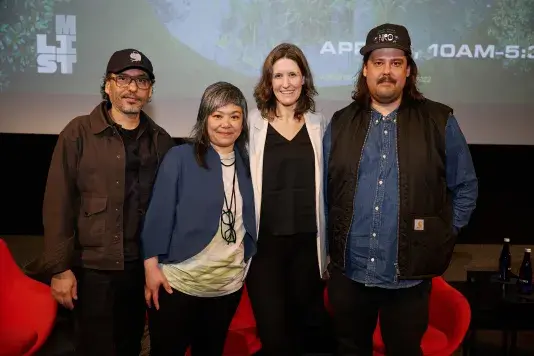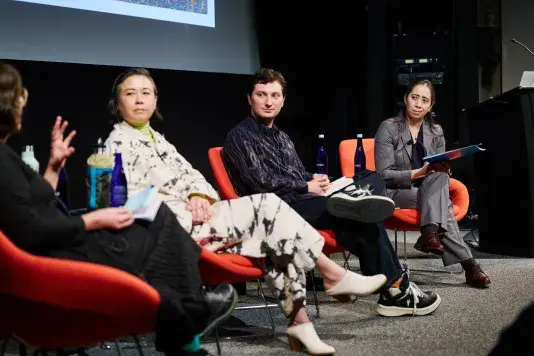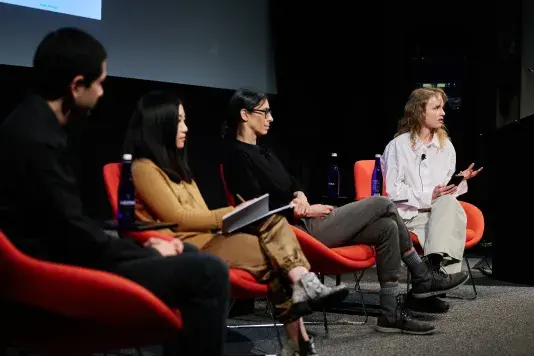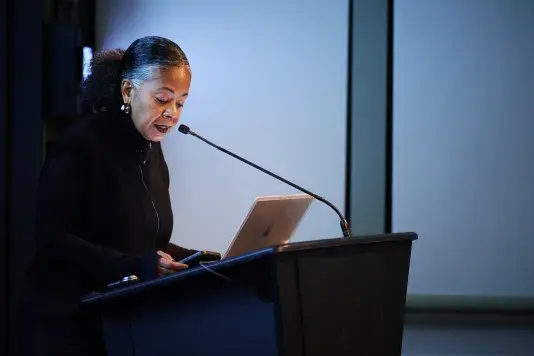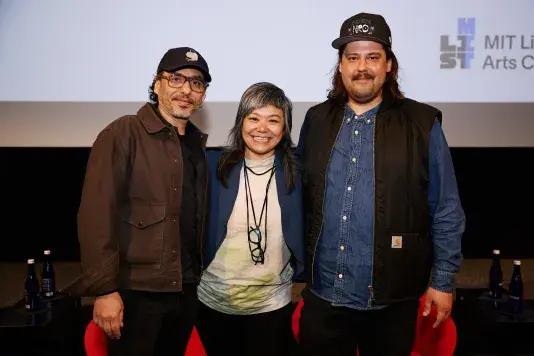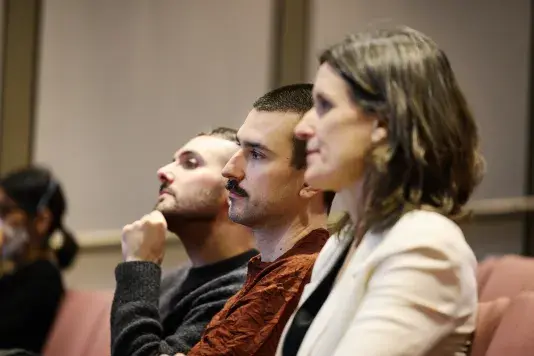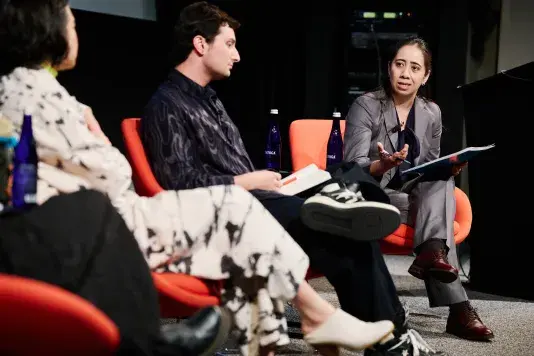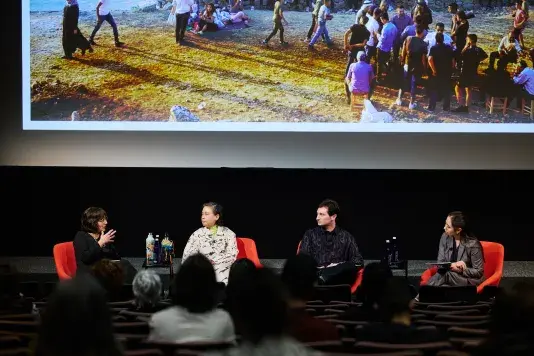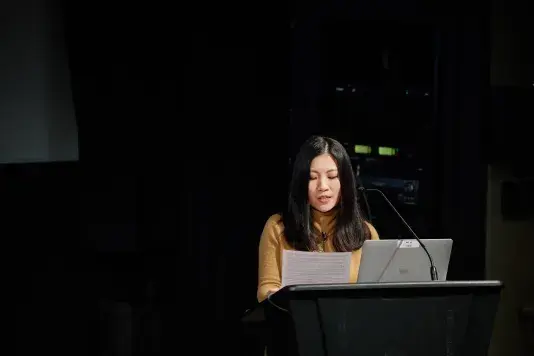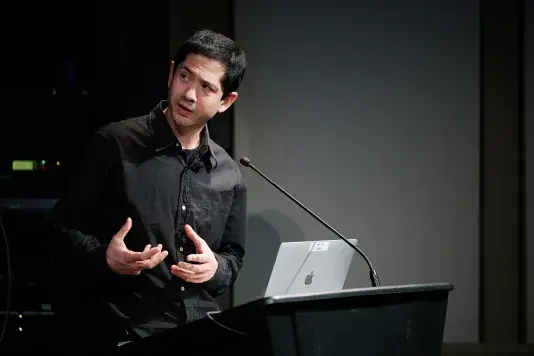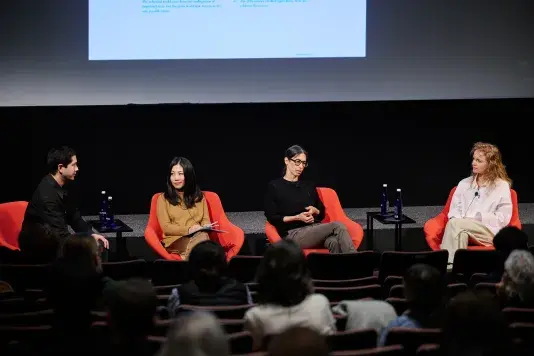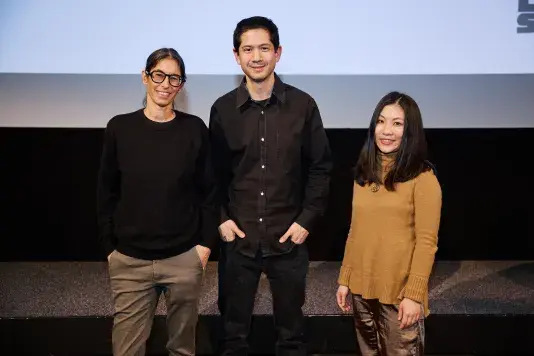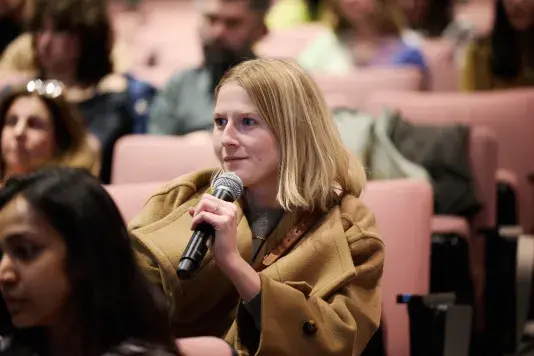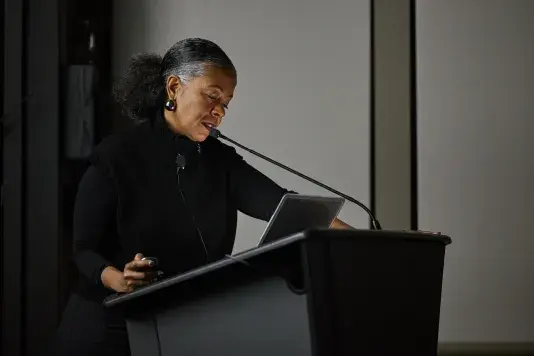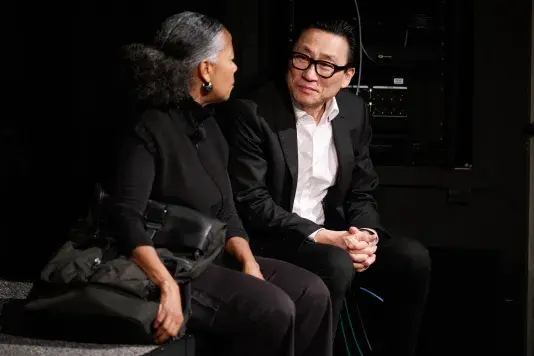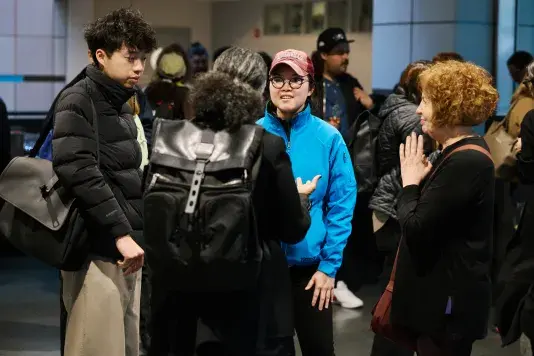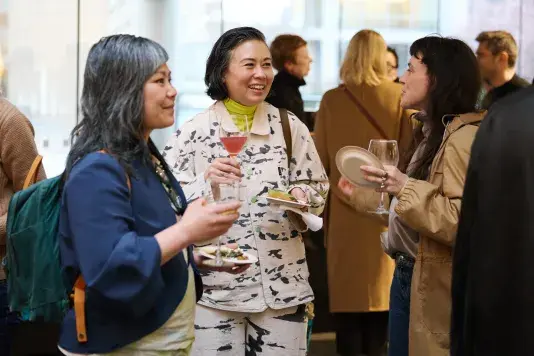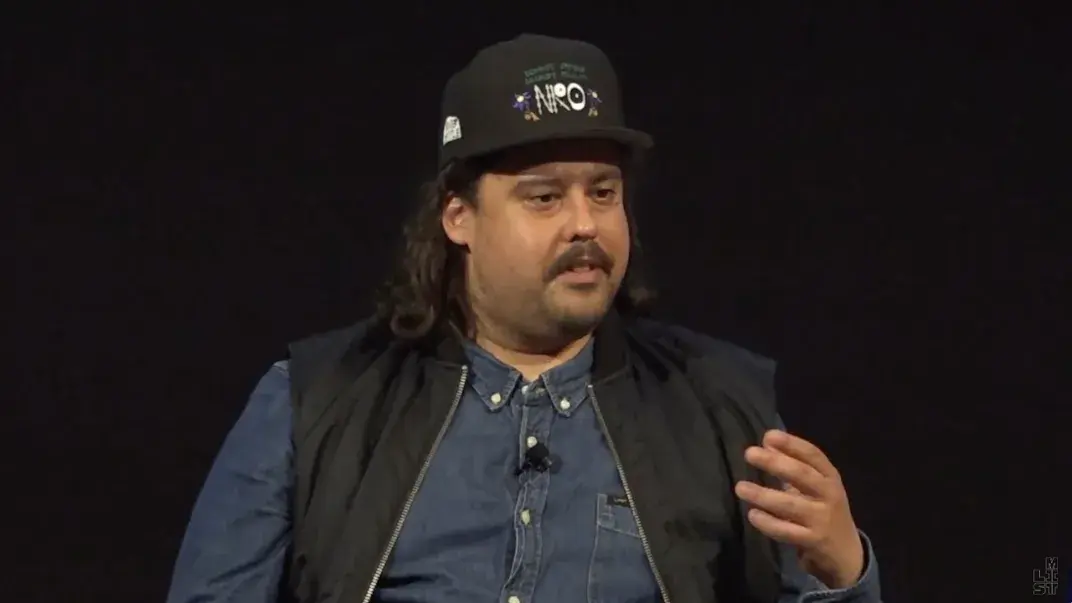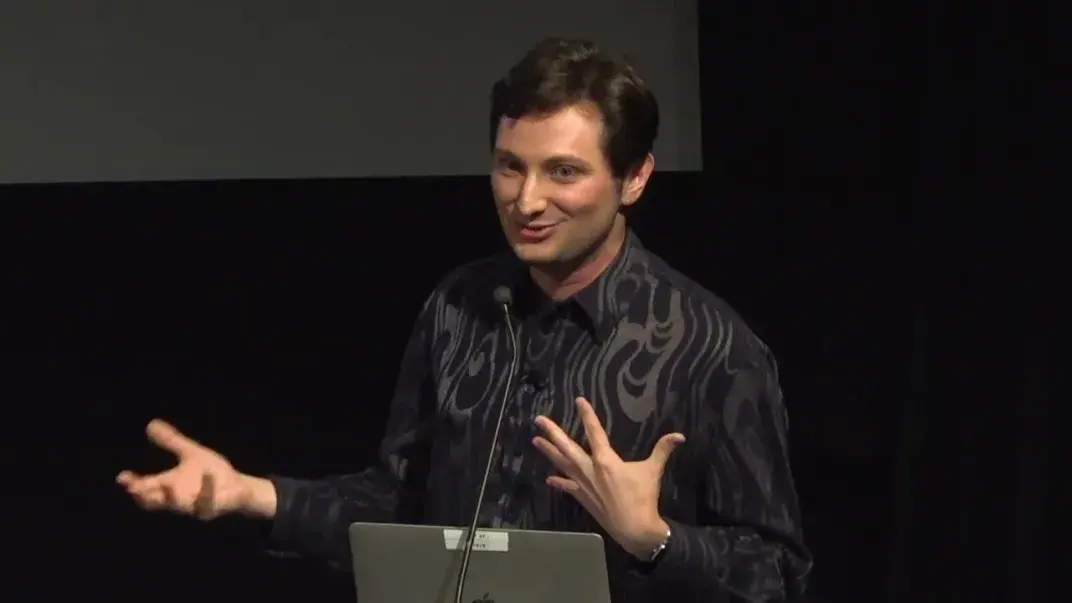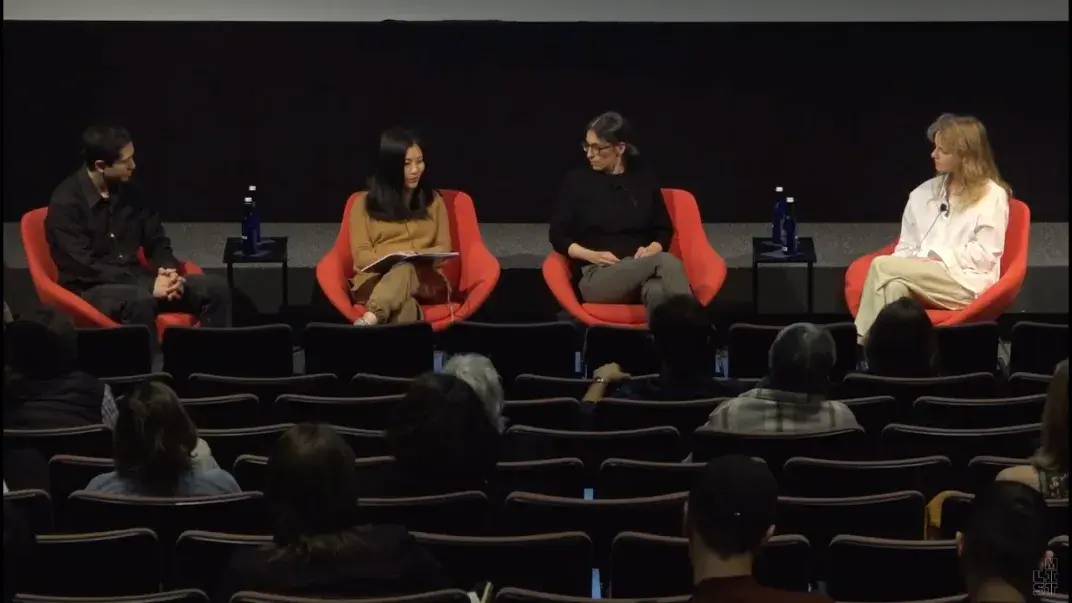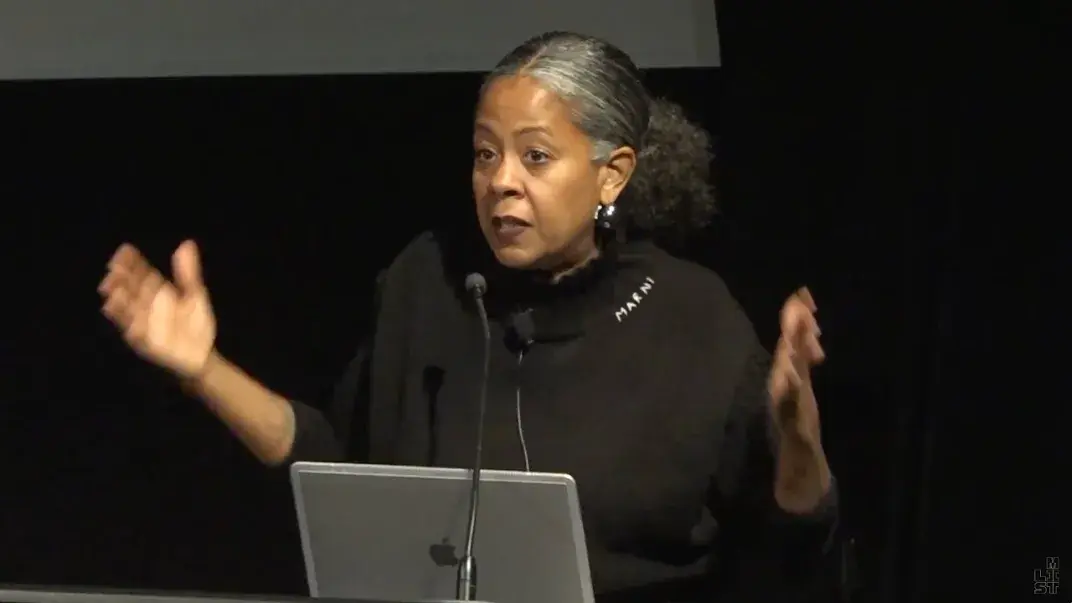Visual identity: Studio ELLA for the 2025 Max Wasserman Forum; Artwork: Michael Wang, Shanghai Swamp, 2022
2025 Max Wasserman Forum: Visions of Sustainability
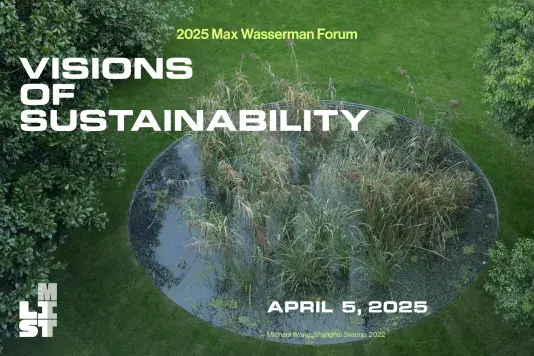
Saturday, April 5, 2025
How have artists navigated landscapes of extraction and ecologies of displacement? The practices represented on this panel consider environmental change within longer histories of colonialism, capitalism, and human effects on our physical environment. Looking at cultural systems and structures, they map the violence of enclosure and dispossession but also propose a renewal of ethical lifeways—paths to reparation, repatriation, and collective survival.
Panelists: Adam Khalil, Nida Sinnokrot, Lan Tuazon
Moderator: Sarah Montross
Hear from artists utilizing social practice and activism to seek out solutions for our changing landscape. These panelists have created multiple artist-run initiatives as a method to work within their communities. This panel will dive deeper into how participatory collaborations can establish new solutions, and how we might find new pathways through dialogue.
Panelists: Lee Pivnik, Jen de los Reyes, Sahar Qawasmi
Moderator: Janelle Knox-Hayes
Panel 3: Rethinking Cultural Systems
Taking a closer look into collections, cultural production, and cultural sites, these artistic practitioners ask us to reconsider the possible. Disrupting default operating systems and pulling at the threads of sourcing and resource allocation, they will explore provenance research, conservation methods, and collection policies in this panel, as well as museum and artistic practices and how they impact global industries and our planet’s degradation.
Panelists: Amy Balkin, Beatrice Glow, Michael Wang
Moderator: Stefanie Hessler
Keynote Address: Torkwase Dyson
Torkwase Dyson (b. 1974, Chicago, Illinois) is a painter working across multiple mediums to explore the continuity between ecology, infrastructure, and architecture. Examining human geography and the history of Black spatial liberation strategies, Dyson’s abstract works grapple with how space is perceived, imagined, and negotiated, particularly by Black and Brown bodies. Dyson has distilled a vocabulary of poetic forms to address the spaciousness of freedom and question what type of climates are born out of world-building.
